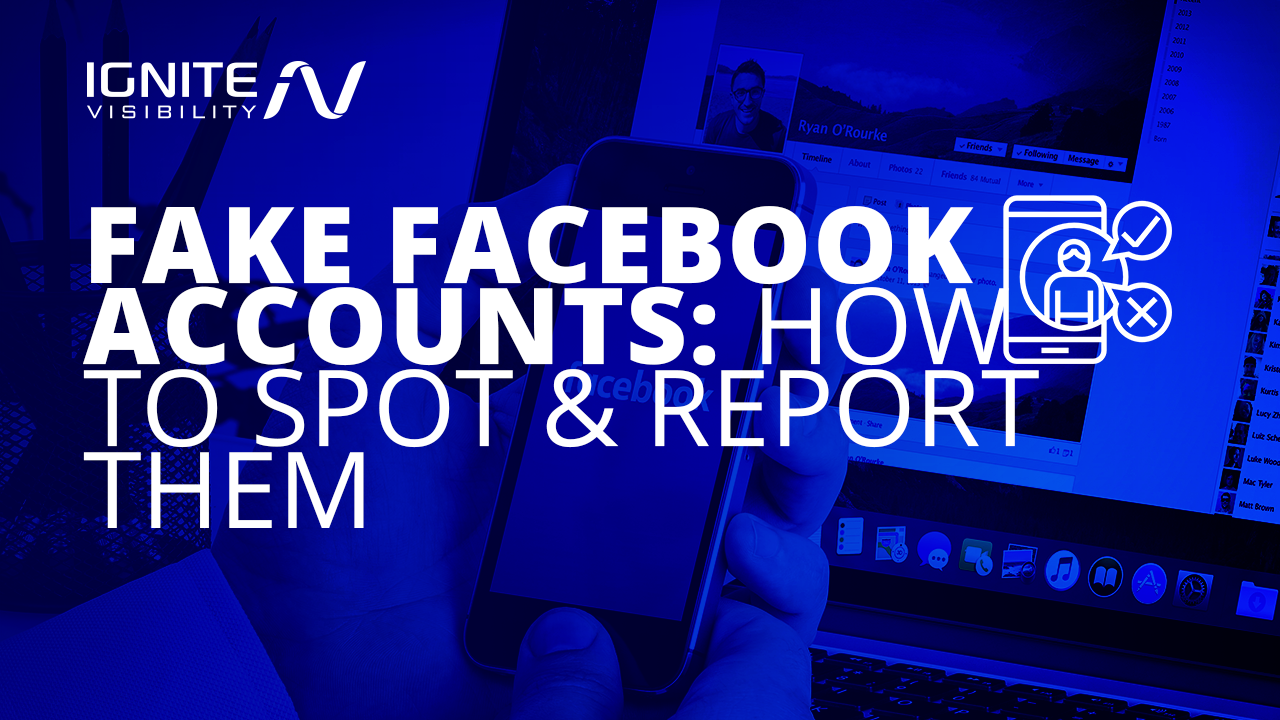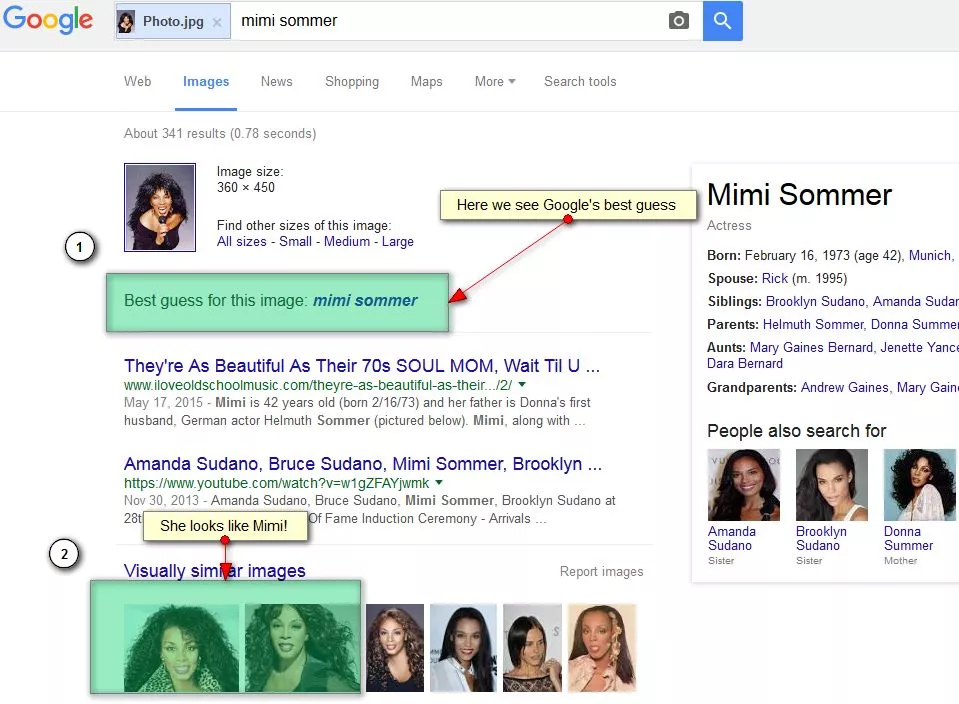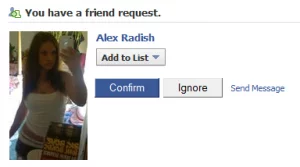
From its inception, Facebook has had a major issue with fake accounts.
Today, these accounts are just as prevalent as they’ve ever been. You can often find them replying to people’s comments on public posts, for example, with many of them asking them to accept their friend requests or click on suspicious links.
Some accounts may attempt to scam you through some form of action such as sending money to them or visiting a phishing website. Meanwhile, others may contribute to ad campaigns to sway public opinion or otherwise engage with other users.
At no time has this been more apparent than in the 2016 Presidential Election. To date, it is estimated that $100,000 was spent on approximately 3000 ads connected to about 470 fake Facebook profiles leading up to the election.
Beyond the highly publicized election “fakers”, Facebook has an inordinate amount of fake accounts that defy its terms of use on a daily basis. However, Facebook has also worked to eliminate these accounts, with recent stats showing that Facebook took action on 1.3 billion fake accounts toward the end of 2022 alone.
Fake Facebook Accounts – Background Information
What Are They Used For?
People use these accounts for fake likes, fake comments, fake reviews, etc. But what is really interesting, is that the issue perpetuates itself.
Someone who creates a fake account to like pages or leave comments actually has to like a variety of items, leave a variety of comments and interact with a range of people. Otherwise, the account will be deleted by Facebook.
Why Is This An Issue For Marketers?
These fake accounts also cause an issue for marketers. First, you don’t want to be in a position of guilt by association. Secondly, you don’t want to tarnish your company’s good name by having unsavory or ill-intentioned ads run on your content.
How Are Fake Facebook Accounts Maintained?
With the recent light shone on these fake accounts and the spread of disinformation, Facebook has started to take a hard-line stance against those who use the platform for nefarious reasons.
But while Facebook works on doing its part to eliminate the problem, you need to do your own due diligence to spot the fakes.
Fake Facebook Accounts: What to Look For
To address fake accounts, it’s important to know how to tell if a Facebook profile is fake. Some scammy Facebook comments are more obvious than others. Similar to this instance mentioned in the comments of our recent post, which had no connection to maverick trading or trading platforms.

Clicking on the profile, we were greeted by a cluster of photos on the left that appeared to belong to a real person, but all recent posts appeared to be about the same trading scam. It looked as though someone had spoofed another person’s account to create one dedicated to pushing this particular scam. If you want to know how to spot a fake Facebook account, this is a great example of one that’s easy to label as such.
Now, this appeared to be the type of fake account that was manually managed. But there are also ones that are automated. We’ll get into all that.
Here is how to spot a fake Facebook account.
The Photo
One of the easiest ways to determine that a Facebook account is fake is by examining the photo.
It’s often the case that fake accounts use a profile photo that they’ve downloaded from somewhere else online.
Here is one that liked a post I wrote. Looks a little suspect, don’t you think?
How can you tell if the photo was “borrowed”?
Simple: just fire up Google Image Search, then download the profile photo from the Facebook page that you suspect is fake.
Drag and drop that photo into the Google Image Search bar and click the Search button.
If the photo is from a fake Facebook account, you should see loads of matches all across cyberspace.
Not sure how to tell if a Facebook profile is fake when the image doesn’t pop up in Google? Even if you can’t find a photo of an existing person through a reverse image search, the photo could belong to another person whose identity the scammer is using, such as another Facebook member.
In that first example comment I gave, for instance, the scammer used what looked like a genuine person’s photos to fill up the profile, but all posts were recent and the person eliminated the ability for people to comment on those images.
Spot a Fake Facebook Profile by The Number of Photos
Think about your Facebook friends that you know are real.
Many of them post lots of photos over time. They’ll post pictures of their kids, their extended family members, and funny memes.
Fake users rarely post a lot of photos.
If you suspect that a Facebook user is fake, check the photostream associated with the account.
If there are only a couple of photos, and the account is fairly old, then you can be fairly certain that the account is fake.
The Number of Friends
How many of your real Facebook friends have thousands of friends on Facebook?
Chances are, not too many.
On the flip side, if the account only has a few friends or zero, that is also a sign.
If you see a Facebook account with friends that number into thousands (or less than 10), the account could be fake. However, there are some real Facebook users who have that many friends (or not a lot), so don’t be hasty to jump to a conclusion about popular Facebook users.
You might also wonder how to tell if a Facebook profile is fake even if the profile has many friends. In some cases, you might see a profile with hundreds of friends, but if the account is relatively new, this could merely indicate many fake friends like fellow scammers or bots or people who recently accepted the friend request. The age of the account is still a big factor here when deciding whether the account is fake.
Review Recent Activity
Many people who are on Facebook share a common trait: They use Facebook fairly regularly.
If you suspect a fake Facebook profile, check the recent activity on the user’s wall.
If the user is performing various activities from time to time, such as posting updates, adding photos and getting tagged by friends, then it’s probably a real account.
On the other hand, if the timeline is strangely absent of any type of activity, you’re probably looking at a fake Facebook account.
Also, it can be a signal of a fake account if you see conversations that people would never have, like this.
Hi
Great photo
Thank you
You are great
Good day!
Look Into Mutual Friends
If you receive a Facebook friend request from somebody you don’t know that alone should be a red flag.
However, it’s an even larger red flag if the two of you share no mutual friends. Sometimes, people will send Facebook friend requests to people that they share mutual friends with, even if they don’t know the user personally.
It’s your call as to whether or not you want to accept those requests, but it’s not a good idea to accept a friend request from 1) somebody you don’t know and 2) somebody who shares no mutual friends with you.
If both of those situations are true, it’s a sign you’re receiving an overture from a fake account. Here is an example of a phishing scam friend request that was pretty prevalent a few years ago. That is not a real profile.
A Weird Biography
When you click on somebody’s Facebook link, you can see a brief biography about the user on the left-hand side of the page. If the information there seems fishy, it’s a sign that the account is fake.
For example, if somebody claims to have been born in Cape Cod, Massachusetts, but went to school in Mumbai, India, and now works for a car repair shop in Tulsa, Oklahoma, then you have a good reason to suspect that account.
Non-Responsiveness
If you think that a Facebook account might be fake, send the user a private message. If you get no response, the account might be fake.
Why? Because fake Facebook accounts are often created by bots that don’t send or respond to private messages.
Non-responsiveness to messages is an excellent way to determine if a Facebook account is fake.
What Should You Do If You Find a Fake Facebook Account?
So, now that you know how to tell if a Facebook profile is fake, you might wonder what the next step involves. If you believe a Facebook account is fake, there are certain steps to take to avoid any potential scams and have Facebook delete the account.
First, if the account sends you a friend request or requests you to send them one, simply don’t do it. Instead, if you identify a fake Facebook account, immediately report the account to Facebook. While Facebook may not immediately look into the account, enough people reporting the account will prompt an investigation and will increase the chances of Facebook deleting the profile.
Keep an eye out for similar types of obviously fake accounts, as they may use the same tactics that give themselves away. Learning about these tactics will help you identify more fake Facebook accounts in the future.
FAQs About Fake Facebook Accounts
1. How Does Facebook Measure Fake Accounts?
At this time, Facebook measures fake accounts based on enforcement report metrics that pertain to content violations against their terms of service. According to Facebook, most activity on the platform is genuine and involves real users, but Meta is also looking for ways to improve the ability to report fake accounts.
2. What Can a Fake Facebook Account Do?
One way to know how to tell if a Facebook profile is fake is the type of conduct the “person” uses. They often randomly friend people on the platform to gain access to their personal information, either through chat or the person’s profile. The endgame is often to commit identity theft.
3. How Does Facebook Recognize Fake Accounts?
While you might know how to spot a fake Facebook account, you might wonder how Facebook detects them. Upon identifying a potentially fake account, Facebook uses technology to look at fanout, direct, and aggregated features to determine whether the account is truly fake.
Direct features include factors like gender, age, and the number of friends the user has. Fanout features include elements like postings, status updates, the number of admins, and the number of pages administered. Facebook can also combine the two to analyze the account even further to determine whether it’s fake.
Ready to Enhance Your Facebook Presence?
Fake Facebook accounts aren’t anything new. While it’s important to know how to spot them, hiring a social media marketing agency can help you clean up your friend list and weed out pesky accounts. We leverage the power of social media marketing to help businesses secure valuable followers while achieving their marketing goals.
Our expert strategists work closely with clients to understand their unique needs and design customized social media strategies that maximize return on investment. Whether it’s creating scroll-stopping content or building impressive ads, we handle every aspect of social media across various platforms to ensure our clients receive optimal results.
Want to learn more about our social media management services?



